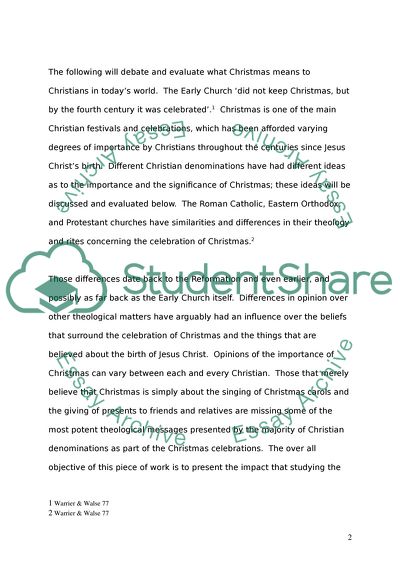Cite this document
(“Christmas: The Impact on Christianity Essay Example | Topics and Well Written Essays - 1750 words”, n.d.)
Christmas: The Impact on Christianity Essay Example | Topics and Well Written Essays - 1750 words. Retrieved from https://studentshare.org/religion-and-theology/1539212-christmas-the-impact-on-christianity
Christmas: The Impact on Christianity Essay Example | Topics and Well Written Essays - 1750 words. Retrieved from https://studentshare.org/religion-and-theology/1539212-christmas-the-impact-on-christianity
(Christmas: The Impact on Christianity Essay Example | Topics and Well Written Essays - 1750 Words)
Christmas: The Impact on Christianity Essay Example | Topics and Well Written Essays - 1750 Words. https://studentshare.org/religion-and-theology/1539212-christmas-the-impact-on-christianity.
Christmas: The Impact on Christianity Essay Example | Topics and Well Written Essays - 1750 Words. https://studentshare.org/religion-and-theology/1539212-christmas-the-impact-on-christianity.
“Christmas: The Impact on Christianity Essay Example | Topics and Well Written Essays - 1750 Words”, n.d. https://studentshare.org/religion-and-theology/1539212-christmas-the-impact-on-christianity.


